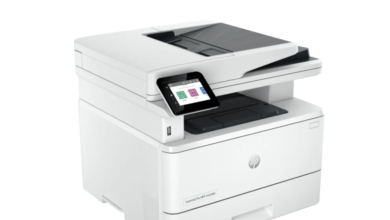“How to Value Your Charlotte Business for a Successful Sale”

Understanding Business Valuation Methods
When you’re thinking about selling your business for sale in charlotte nc, figuring out what it’s actually worth is a big deal. There are a few different ways people go about this, and each one looks at different things. It’s not an exact science, but it gives you a good starting point. Knowing these methods can help you understand what business brokers charlotte nc are talking about and set realistic expectations.
Asset-Based Valuation
This method is pretty straightforward. It’s all about adding up the value of everything your business owns (assets) and then subtracting what it owes (liabilities). What’s left is the net asset value, which is supposed to be what your business is worth. It’s like figuring out the value of a house by looking at the land, the building, and subtracting the mortgage.
- It’s easy to understand.
- It’s good for businesses with a lot of tangible assets.
- It might not reflect the true earning potential.
Income Approach Valuation
This way of valuing a business focuses on how much money it’s expected to make in the future. There are a couple of ways to do this, but the most common is called Discounted Cash Flow (DCF). Basically, you estimate how much cash the business will generate over a certain period, and then you discount that back to today’s dollars. The idea is that money today is worth more than money in the future.
This method is more about potential than current assets. It’s forward-looking, which can be good or bad depending on how accurate your predictions are. It’s also more complex than the asset-based approach.
Market Comparison Valuation
This method looks at what similar businesses have sold for recently. It’s like when you’re selling a house and you look at what other houses in your neighborhood have sold for. You find businesses that are in the same industry, about the same size, and in a similar location, and then you see what their sale prices were. This can give you a good idea of what buyers are willing to pay for a business like yours. Finding truly comparable businesses can be tricky, though.
- Relies on recent sales data.
- Good for getting a sense of market trends.
- Can be difficult to find truly comparable businesses.
Choosing the right valuation method depends on your specific business and the market conditions. It’s often a good idea to use more than one method to get a more complete picture. If you’re working with business brokers charlotte nc, they can help you decide which methods are most appropriate for your situation.
Factors Influencing Business Value
Several elements come into play when determining what your business is worth. It’s not just about the numbers on a spreadsheet; it’s about the story those numbers tell and the environment in which your business operates. Let’s break down some key factors.
Location and Market Conditions
Where your business is located and the overall state of the market significantly impact its value. A prime location in a thriving area is obviously more desirable than a spot in a declining neighborhood. Market conditions, like economic growth or recession, also play a big role. If you’re in Charlotte, NC, the local economy and specific industry trends will be closely examined by potential buyers. Are there a lot of similar businesses for sale Charlotte NC? That could affect your valuation.
- Local Demographics: Are there enough customers in the area?
- Accessibility: Is your business easy to get to?
- Competition: How many similar businesses are nearby?
Financial Performance Metrics
This is where the numbers really matter. Buyers will scrutinize your financial statements to assess the health and profitability of your business. Key metrics include revenue, profit margins, cash flow, and debt levels. Consistent growth and strong financial performance will increase your business’s value. A clear and positive financial trend is a major selling point.
| Metric | Description | Importance |
| Revenue | Total income generated | Shows market demand and growth potential |
| Profit Margins | Percentage of revenue remaining after costs | Indicates efficiency and profitability |
| Cash Flow | Movement of money in and out of the business | Demonstrates ability to cover expenses |
| Debt-to-Equity | Ratio of debt to owner’s equity | Reveals financial risk and stability |
Industry Trends and Competition
What’s happening in your industry? Is it growing, shrinking, or staying the same? Are there new technologies or regulations that could impact your business? How does your business stack up against the competition? These are all important questions that buyers will consider. If you’re working with business brokers Charlotte NC, they’ll be able to give you a good idea of what similar businesses are selling for and what buyers are looking for in the current market.
Understanding your industry’s landscape is vital. A business operating in a growing sector with limited competition is generally more attractive than one facing declining demand and intense rivalry. Buyers want to see that your business is well-positioned for future success, not struggling to stay afloat.
- Growth Potential: Is the industry expected to grow?
- Competitive Advantage: What makes your business stand out?
- Regulatory Environment: Are there any upcoming changes that could affect your business?
Preparing Your Business for Sale
Getting your business ready to sell is like prepping your house before putting it on the market. You want to make a good first impression and show potential buyers that you’ve taken care of things. It’s more than just tidying up; it’s about demonstrating the value and potential of your business.
Organizing Financial Records
Think of your financial records as the report card for your business. Buyers will want to see clear, accurate, and complete financial information to assess the health and profitability of your company. This includes:
- Profit and loss statements for the past 3-5 years
- Balance sheets
- Tax returns
- Cash flow statements
- Detailed records of assets and liabilities
Having these documents organized and readily available can speed up the due diligence process and build trust with potential buyers. If you’re looking at selling your business for sale Charlotte NC, you’ll want to make sure your books are in order. It might be worth getting a professional to help you clean things up if you’re not confident in your own abilities.
Enhancing Curb Appeal
Curb appeal isn’t just for houses; it applies to businesses too. This is about making your business look attractive and well-maintained, both physically and digitally. First impressions matter, and you want to show potential buyers that you care about your business. Consider these points:
- Clean and repair the physical premises
- Update your website and social media presence
- Ensure your branding is consistent and professional
- Address any deferred maintenance issues
A fresh coat of paint, a well-designed website, and a clean storefront can go a long way in attracting potential buyers. It shows that you’ve invested in your business and that it’s ready for the next owner to take over.
Streamlining Operations
Streamlining operations means making your business run as efficiently as possible. Buyers want to see a business that’s well-organized and easy to manage. This can involve:
- Documenting key processes and procedures
- Automating tasks where possible
- Reducing unnecessary expenses
- Improving inventory management
If you’re thinking about using business brokers Charlotte NC, they’ll tell you that a streamlined business is much easier to sell. Buyers are often looking for businesses that are already running smoothly, so they can step in and continue the success. It’s all about making the transition as easy as possible for the new owner.
Engaging Professional Valuation Services
Sometimes, figuring out what your business is really worth is best left to the pros. It’s like trying to fix your car when you barely know how to change a tire – you might end up making things worse. Getting a professional valuation can give you a solid, unbiased number to work with when you’re thinking about selling. Plus, it can help avoid headaches down the road.
Choosing the Right Business Appraiser
Finding the right appraiser is key. You want someone who knows their stuff and has experience valuing businesses similar to yours. It’s not just about finding someone local, like searching for “business brokers charlotte nc,” but also checking their credentials and background. Ask about their experience, what methods they use, and if they specialize in your industry. A good appraiser will be transparent about their process and happy to answer your questions. Think of it like hiring a contractor – you want someone reliable and trustworthy.
Understanding Valuation Reports
Once the appraiser does their thing, you’ll get a valuation report. This isn’t just a number; it’s a detailed breakdown of how they arrived at that number. It’ll cover things like your company’s financial history, market conditions, and any unique factors that affect its value. Don’t just skim it! Take the time to really understand what it says. If something doesn’t make sense, ask the appraiser to explain it. This report is a tool to help you make informed decisions, especially when you’re looking at “business for sale charlotte nc” listings and trying to gauge your own business’s worth.
Cost of Professional Services
Okay, let’s talk money. Professional valuation services aren’t free, and the cost can vary depending on the complexity of your business and the appraiser you choose. It’s a good idea to get quotes from a few different appraisers before making a decision. While cost is a factor, don’t just go with the cheapest option. You want someone who’s thorough and accurate, even if it means paying a bit more. Think of it as an investment in your business’s future. Here’s a rough idea of what you might expect:
| Service | Estimated Cost |
| Basic Valuation | $3,000 – $5,000 |
| Complex Valuation | $5,000 – $10,000+ |
| Expert Witness Testimony | Varies |
Getting a professional valuation is like getting a second opinion from a doctor. It can give you peace of mind knowing you have a solid understanding of your business’s worth. It’s an important step in preparing for a sale and can help you negotiate with confidence.
Here are some things to consider when budgeting for valuation services:
- The complexity of your business operations.
- The appraiser’s experience and credentials.
- The scope of the valuation report.
Marketing Your Business for Sale
Okay, so you’ve figured out what your business is worth, prepped it for a sale, and now it’s time to actually, you know, sell it. Marketing your business is super important. You can’t just sit around and hope someone magically appears with a check. You need to get the word out there, and do it right.
Creating an Attractive Listing
First impressions matter, big time. Your listing is like your business’s dating profile – you want to put your best foot forward. Don’t skimp on the details, but also don’t write a novel. Here’s what to keep in mind:
- High-Quality Photos: Seriously, ditch the blurry phone pics. Get some good shots of your business, inside and out. Show off the best features.
- Compelling Description: Highlight what makes your business special. What are its strengths? What opportunities are there for a new owner?
- Key Financial Information: Be transparent about the numbers. Include revenue, profit margins, and any other relevant financial data. Obviously, you don’t want to give away everything, but give potential buyers enough to pique their interest.
Utilizing Online Platforms
The internet is your friend. There are tons of online platforms where you can list your business for sale. Some are general marketplaces, while others are more specialized. Here are a few options:
- BizBuySell: A popular platform with a large audience of potential buyers.
- BusinessesForSale.com: Another well-known site with a wide reach.
- Industry-Specific Websites: If your business is in a niche industry, look for websites that cater to that specific market.
Don’t just list your business on one platform and call it a day. Cast a wide net. The more people who see your listing, the better your chances of finding the right buyer.
Networking with Local Brokers
Don’t underestimate the power of networking, especially with business brokers Charlotte NC. These guys know the local market inside and out. They have connections with potential buyers and can help you navigate the sales process. Finding the right broker is key. Look for someone with experience in your industry and a proven track record of success. They can help you find the right buyer for your business for sale Charlotte NC.
Consider these points when choosing a broker:
- Experience: How long have they been in the business?
- Reputation: What do other business owners say about them?
- Network: Do they have a strong network of potential buyers?
Working with a broker isn’t free, but it can be worth the investment if they can help you sell your business quickly and for a good price. They can handle a lot of the heavy lifting, like marketing your business, screening potential buyers, and negotiating the sale. Plus, they can help you avoid common pitfalls and ensure a smooth transaction. Ultimately, the goal is to get your business seen by the right people.
Negotiating the Sale Price
Okay, so you’ve prepped your business, got a valuation, and now it’s time for the part everyone dreads (or loves, if you’re a natural negotiator): hammering out the final sale price. This isn’t just about the numbers; it’s about understanding what the buyer is thinking and being ready to walk away if needed. Finding the right business brokers charlotte nc can be a game changer during this phase.
Setting Realistic Expectations
First things first: ditch the Hollywood fantasies. You’re probably not going to get everything you want. Do your homework. What are similar businesses for sale charlotte nc actually selling for? What are their strengths and weaknesses compared to yours? A professional valuation is a great starting point, but the market ultimately decides the price. Be honest with yourself about your bottom line – the absolute lowest you’re willing to accept. Knowing this number will keep you grounded during negotiations.
- Research comparable sales data.
- Consider your business’s unique selling points.
- Determine your walk-away price.
Understanding Buyer Psychology
Buyers aren’t just looking at the numbers; they’re also looking at the potential. They’re thinking about risk, reward, and how much work it’s going to take to keep the business running smoothly. Some buyers are emotionally invested, especially if they’ve been dreaming of owning a business like yours for a long time. Others are purely analytical, focusing on ROI and future growth. Figure out which type of buyer you’re dealing with. Are they risk-averse? Do they value stability over growth? Tailor your approach to their concerns and motivations. For example, if they’re worried about customer retention, highlight your loyal customer base and strong relationships.
Handling Offers and Counteroffers
This is where the rubber meets the road. You’ll likely receive an initial offer that’s lower than your asking price – that’s just part of the game. Don’t get offended; instead, carefully consider the offer and identify areas where you can negotiate. Maybe they’re lowballing the price but willing to offer favorable terms, like a longer transition period or a consulting agreement. Prepare a counteroffer that addresses their concerns while still moving you closer to your target price. Be prepared to justify your counteroffer with data and evidence. Remember, negotiation is a dance, not a battle. Be respectful, professional, and willing to compromise. If you reach an impasse, consider bringing in a mediator or a business broker to help bridge the gap.
It’s easy to get caught up in the emotional aspects of selling your business, especially if you’ve poured your heart and soul into it. Try to stay objective and focus on the facts. Remember, the goal is to reach a mutually agreeable price that allows you to move on to your next chapter while ensuring the business continues to thrive under new ownership.
Legal Considerations in Selling Your Business
Selling a business involves more than just finding a buyer and agreeing on a price. There are significant legal aspects that need careful attention to ensure a smooth and legally sound transaction. Overlooking these can lead to disputes, liabilities, and even the collapse of the deal. It’s a good idea to consult with legal professionals who specialize in business sales, especially if you’re looking at businesses for sale Charlotte NC.
Drafting a Sales Agreement
The sales agreement is the cornerstone of any business sale. It outlines the terms and conditions of the sale, protecting both the seller and the buyer. It’s not just a formality; it’s a legally binding document that dictates the entire process. A well-drafted sales agreement should clearly define what’s being sold (assets, stock, etc.), the purchase price, payment terms, closing date, and any warranties or representations made by the seller. It should also address potential liabilities and how they will be handled. Don’t just grab a template online; get a lawyer to tailor it to your specific situation.
Here are some key elements to consider including in the sales agreement:
- Detailed description of assets being transferred
- Allocation of purchase price for tax purposes
- Non-compete agreements for the seller
- Confidentiality clauses
Understanding Tax Implications
The sale of a business can have significant tax implications for both the seller and the buyer. It’s important to understand these implications beforehand to plan accordingly and minimize tax liabilities. Different types of business structures (sole proprietorship, partnership, LLC, corporation) will have different tax consequences. Capital gains taxes, depreciation recapture, and state taxes are just a few of the things to consider. Consulting with a tax advisor is crucial to navigate these complexities. For example, if you are working with business brokers Charlotte NC, they may be able to recommend a tax advisor.
Understanding the tax implications of selling your business is not just about minimizing your tax bill; it’s about making informed decisions that can impact your financial future. Failing to properly plan for taxes can result in unexpected costs and penalties, potentially jeopardizing the financial benefits of the sale.
Ensuring Compliance with Local Laws
Every state and locality has its own set of laws and regulations that govern business sales. These can include things like business licenses, permits, zoning regulations, and environmental regulations. It’s important to ensure that the business is in compliance with all applicable laws before the sale is finalized. This may involve conducting due diligence to identify any potential compliance issues and taking steps to correct them. Failure to comply with local laws can result in fines, penalties, and even legal action. It’s also important to understand any industry-specific regulations that may apply to your business.
Here’s a quick checklist:
- Verify all business licenses and permits are current.
- Check for any outstanding legal claims or lawsuits.
- Ensure compliance with environmental regulations.
Wrapping It Up
So, there you have it. Figuring out how much your Charlotte business is worth isn’t just about crunching numbers. It’s about knowing your market, understanding what buyers want, and being realistic about your business’s strengths and weaknesses. Take your time with this process. Talk to professionals if you need to, and don’t rush into anything. When you finally put your business on the market, you’ll feel more confident knowing you’ve done your homework. Remember, a well-valued business can lead to a smoother sale and a better deal. Good luck out there!





